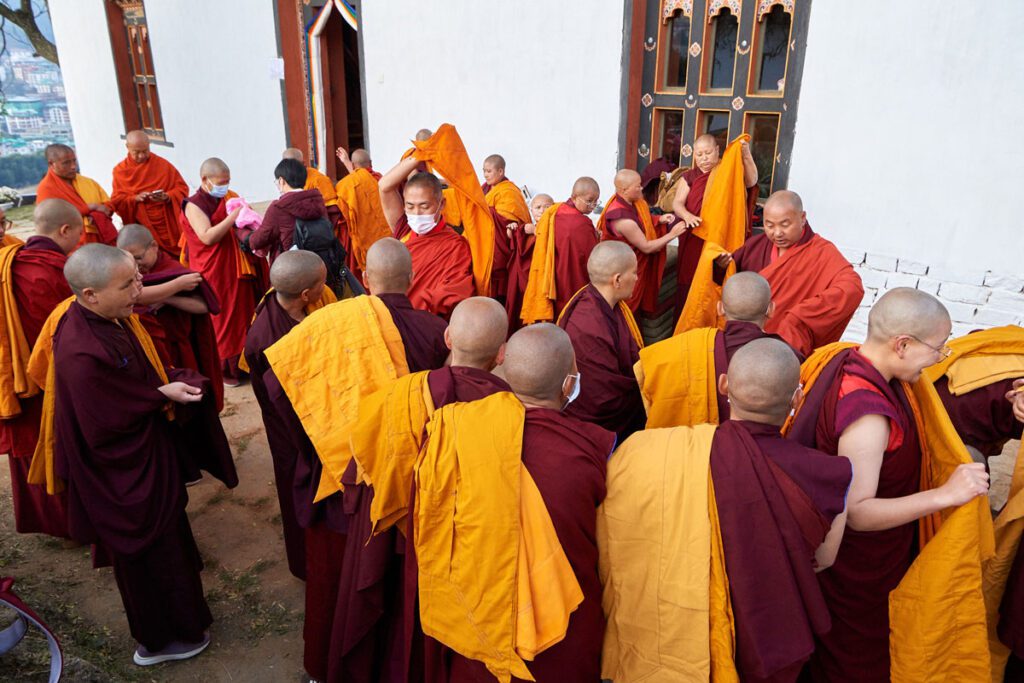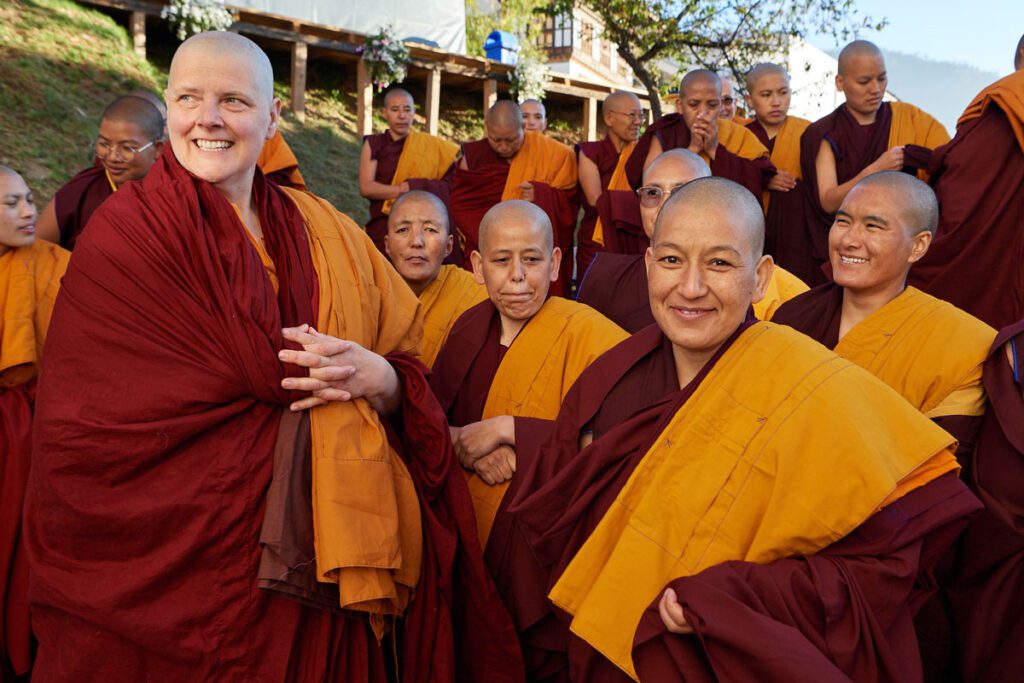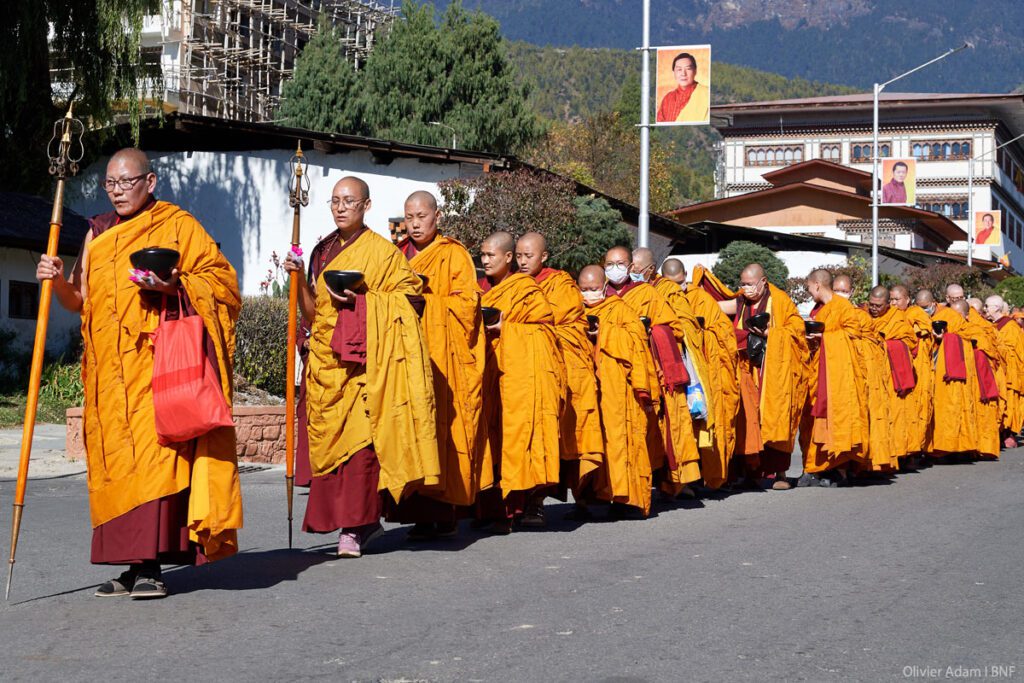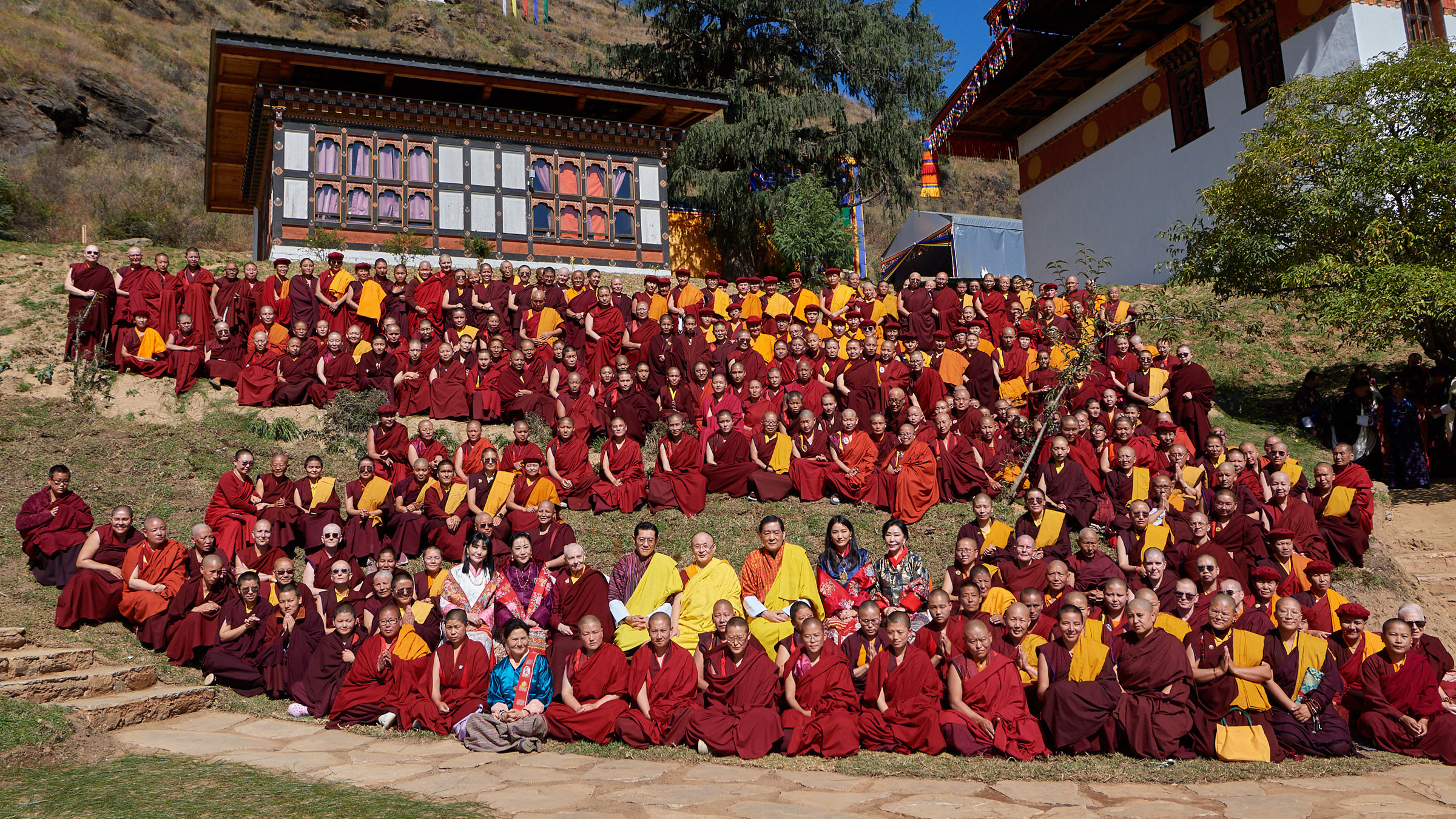In Thimphu, Bhutan, 265 Buddhist nuns from ten countries received bhikshuni ordination, with ceremonies beginning on November 15 and concluding November 20. The ordination was presided over by His Holiness the Je Khenpo, spiritual head of Bhutan’s largest Buddhist school, the Drugpa Kagyu. Since bhikshuni ordination—the full ordination of nuns—has traditionally been denied to women within the Tibetan tradition, this ordination is a significant step toward addressing the inequality between men and women in monasticism.
According to the vinaya, the Buddhist code of monastic discipline, bhikshuni ordination can only be conferred when both fully ordained monks and nuns are present. Because a bhikshuni lineage was never established in Tibet or Bhutan, women have been shut out of full monasticism with a catch-22: Without a quorum of nuns to attend the ordination, no woman can be fully ordained.

“The novice role is meant for children. It was never meant to be a lifelong thing,” says the Australian Buddhist nun Ayya Yeshe who attended the recent ordination. And yet, traditionally, Vajrayana female practitioners can only ordain as novices, and no matter how long they live and practice as nuns, they’re never considered anything other than novices. As a result, they’re rarely accorded the same educational opportunities or resources as their male counterparts. And lacking equal status, they’re prevented from assuming full roles within the monastic order, including decision-making.
Frequently, nuns internalize society’s view of them as inferior, and this erodes their self-esteem—their confidence in their own buddhanature. With laywomen witnessing the treatment of nuns, they can also begin to doubt themselves and their own spiritual potential. So, as Ayya Yeshe describes it, after one thousand years of Himalayan Buddhism, it is a progressive, compassionate, and powerful step to begin fully ordaining women, allowing them to be full participants in the fourfold sangha. “It’s a huge milestone,” she says.

Within Tibetan Buddhism, the first ceremony to grant bhikshuni vows in modern times took place in June, 2022. Like this recent ordination, it was also held in Bhutan and presided over by His Holiness the Je Khenpo, who described the 2022 ordination of 144 female monastics as aimed at “serving sentient beings through the buddhadharma, engendering religious freedom and helping human rights.”
With human rights being a critical pillar of world peace, the just concluded ordination of 265 women was the final segment of the inaugural Global Peace Prayer Festival. This festival, which began in Thimphu, Bhutan, on November 4, welcomed dharma practitioners, teachers, and leaders from all Buddhist traditions and from all over the world.
As the Bhutanese lama His Eminence Laytshog Lopen explained, “The festival is dedicated to addressing the pressing challenges of our time—the hardships of famine, the disasters of the four elements, earthquakes, wars, and conflicts—that continue to cause insecurity and suffering across the world.”

“We’re all interconnected—none of us are free, until all of us are free,” concludes Ayya Yeshe. “If you really are a Buddhist practitioner, and you really see the sacred interconnectedness of all beings, nothing bad can come out of empowering women. It shows that the men here [in Bhutan] respect women and want them to pursue the path of enlightenment, attain liberation, and preserve the dharma, and that they are really abiding by the Vajrayana vow to view women as sacred—to view women as the embodiment of wisdom. In elevating the nuns, they are elevating themselves. They are showing themselves to be good men, and that the country itself values women and the sacred role they have always embodied in the Vajrayana tradition as embodiments of wisdom.”
You can read more about the Global Peace Prayer Festival here. Lion’s Roar readers curious about travel to Bhutan might also be interested our March 2026 pilgrimage.

